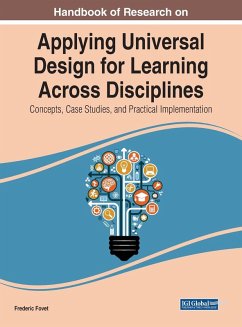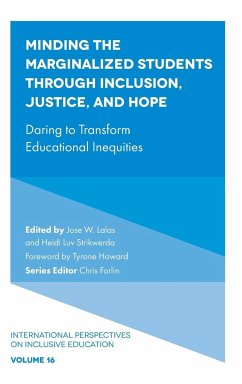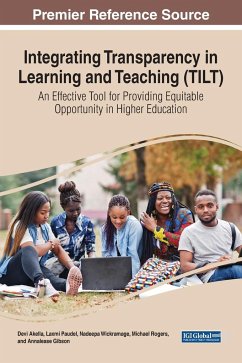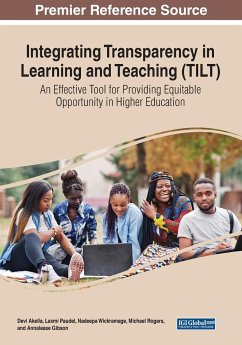
Handbook of Research on Inequities in Online Education During Global Crises
Versandkostenfrei!
Versandfertig in 1-2 Wochen
242,99 €
inkl. MwSt.

PAYBACK Punkte
121 °P sammeln!
In response to the COVID-19 pandemic, many educational institutions implemented social distancing interventions such as initiating closure, developing plans for employees to work remotely, and transitioning teaching and learning from face-to-face classrooms to online environments. The abrupt switch to online teaching and learning, for the most part, has been a massive change for administration, faculty, and students at traditional brick-and-mortar universities and colleges as concerns regarding the pedagogical soundness of this mode of delivery remain among some stakeholders. Not only that, bu...
In response to the COVID-19 pandemic, many educational institutions implemented social distancing interventions such as initiating closure, developing plans for employees to work remotely, and transitioning teaching and learning from face-to-face classrooms to online environments. The abrupt switch to online teaching and learning, for the most part, has been a massive change for administration, faculty, and students at traditional brick-and-mortar universities and colleges as concerns regarding the pedagogical soundness of this mode of delivery remain among some stakeholders. Not only that, but the switch has also revealed the inequities in the system when it comes to the types of students universities serve. It is important as institutions move forward with online instruction that consideration be made about all students and what policies and strategies need to be put into place to help support and meet the needs of all constituents now or when unprecedented situations arise. The only way this can be done is by documenting the experiences through the eyes of faculty who were at the frontline of providing instruction and advising services to students. The Handbook of Research on Inequities in Online Education During Global Crises brings to light the struggles faculty and students faced as they were required to switch to online education during the global COVID-19 health crisis. This crisis has revealed inequities in the educational system as well as the specific effects of inequities when it comes to learning online, and the chapters in this book provide information to help institutions be better prepared for online education or remote learning in the future. While highlighting topics such as new educational trends, remote instruction, diversity in education, and teaching and learning in a pandemic, this book is ideal for in-service and preservice teachers, administrators, teacher educators, practitioners, stakeholders, researchers, academicians, and students interested in the inequalities within the educational systems and the new policies and strategies put in place with online education to combat these issues and support the needs of all diverse student populations.












